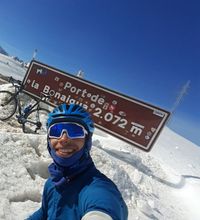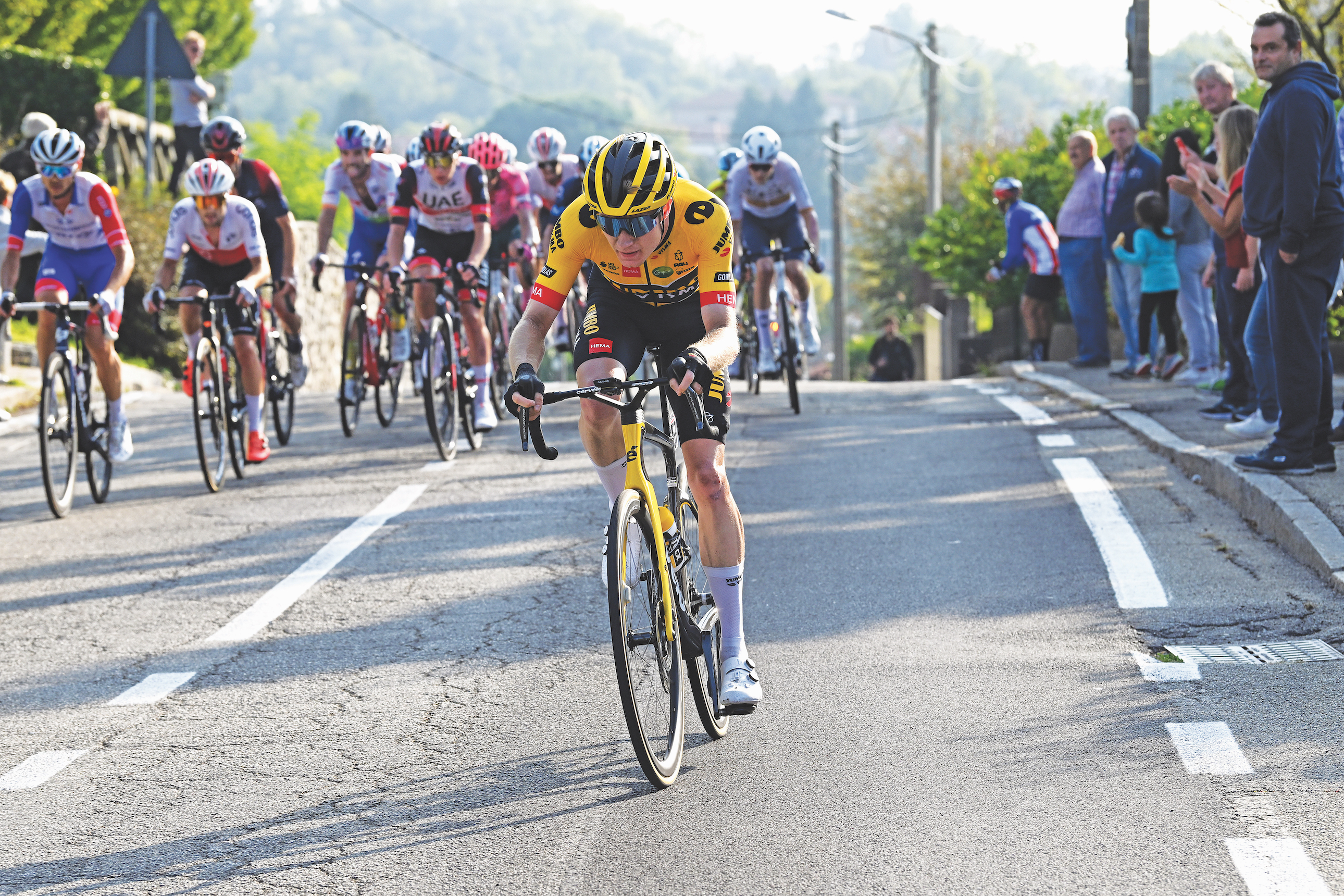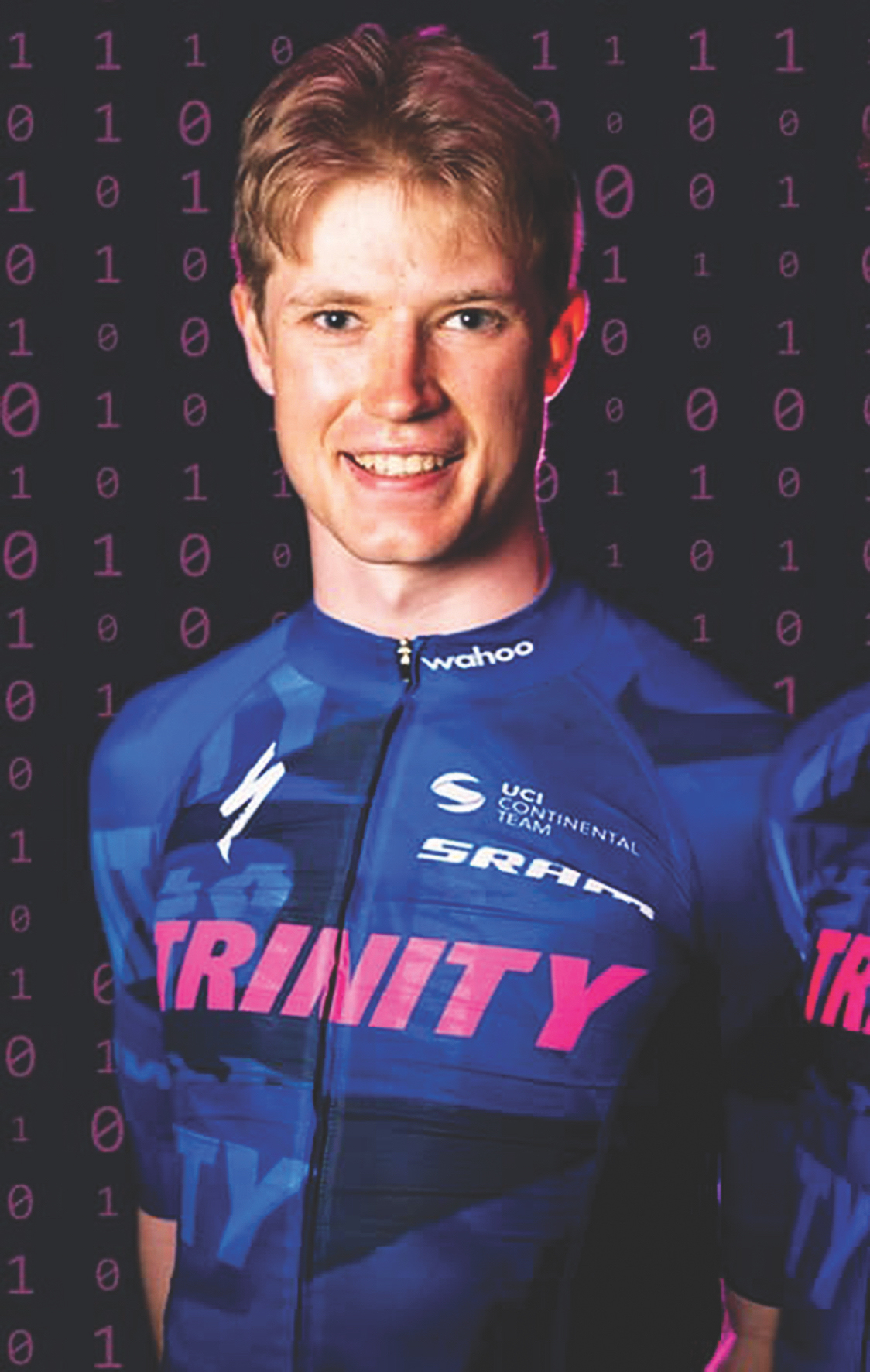'I'm studying maths – my brain needs something else besides cycling': Thomas Gloag on his hunger for learning on and off the bike
The 21-year-old Londoner and new Jumbo-Visma signing on rising to the challenge as he begins his WorldTour career


The latest race content, interviews, features, reviews and expert buying guides, direct to your inbox!
You are now subscribed
Your newsletter sign-up was successful
For each article in this long-running WATT WORKS FOR ME series from Cycling Weekly's print edition, we ask a pro rider about their favourite things in training: what has helped them most in getting to where they are today. The aim is to get to the heart of the beliefs and preferences they hold dear when it comes to building form, maximising fitness and ultimately achieving results. For this edition, we speak to Thomas Gloag...
What’s been your biggest breakthrough?
When I joined Trinity in 2021. I had only ridden for local clubs up until that point, so I was starting from scratch. I knew that to win a race you had to pedal faster than the rest, but I had zero knowledge of anything else. One of the big things was nutrition. As a junior I’d have, at best, 30 grams of carbs and half a bottle during a race. Now I get up to 120 grams per hour on the bike and the difference it makes is enormous.
How have you developed into a climber?
I definitely go better uphill than on the flat, despite coming from London. As a kid I tried really hard to improve my aerobic engine and as a result it made me a better climber. I would focus a lot on sub-threshold zones and tempo work, and on VC Londres rides we’d just smash ourselves. It was all fatigue and endurance resistance, trying to hit the highest zones on every weekend ride. There was little structure behind it, other than riding our bikes with mates and trying to be faster than the day before.
How will you improve your descending?
My biggest weakness, alongside time trialling, is descending, and I’ve had a few spectacular crashes riding off the side of roads. It’s an art I’m still trying to figure out, and I recently had some help from a descending coach, which was so beneficial. He went through the technique of approaching the corner, setting up the pedals and shifting the weight; how you want to lean the bike over but try to stay as upright as possible. It will take a while to become second nature but I can already feel my descending is a lot better.
The latest race content, interviews, features, reviews and expert buying guides, direct to your inbox!
How do you cope with setbacks?
This year was rubbish for several reasons, including having Covid, tonsillitis, a lower back injury and 10 stitches in my knee. I didn’t handle the injuries and illnesses very well and I let things get to me more than I should have. It made me realise the importance of keeping a positive attitude, and of controlling things I can control. It’s easy for me to say that, as in the moment it’s harder to have a clearer head and focus, but I do feel like in the future I will be better as a result of what I’ve experienced this year. I think now I know how to remain more emotionally stable.
What do you do off the bike?
I’m studying maths at the Open University. I’m an over-thinker and thus my brain needs extra stimulation. Cycling is my life, but I like to have a focus on something else, and the maths course and the structure that goes alongside it gives me that.
How do you listen to your body?
This is something I’ve struggled with in the past. It’s an ongoing process of learning when to stop. Training, by definition, is meant to push you, but it’s also about knowing when to go hard and when to back off. These are questions I ask myself a lot to help me better know my limits. It’s little things like telling myself, ‘This shouldn’t feel like this’, or knowing when it’s meant to hurt. Understanding that relationship is something I still get wrong but am improving on.
Rider profile: Thomas Gloag
Age: 21
Height: 5ft 11in
FTP: 380W (estimated)
Lives: London
Rides for: Jumbo-Visma
Best results: 1st – Stage 4, Tour de l’Avenir (2022); 1st – Stage 4, Ronde de l’Isard (2021); 4th – GC, Baby Giro (2021)
Instagram: @tomgloag

Preferred rest day routine?
How I rest depends on how I felt during training and the day after. If I have muscular soreness, I like to do a recovery spin for 30 minutes to one hour at a high cadence. If I need to mentally switch off, I won’t go riding, but generally I prefer a recovery spin.
Preferred travel day routine?
I prefer to do a ride after travelling, as it flushes out the legs. It’ll be an easy spin, the focus on trying to get the body moving and keep the fluidity and routine of riding a bike. I think it really helps, as travelling can make you feel bad.
Quick-fire faves
Motivational song? ‘Underdog’ by Kasabian
Place to ride? Basque Country, Spain
Type of race? Hilly
Way to spend a rest day? Cafe ride with mates
Cafe stop treat in Britain? Cinnamon bun
Cafe stop treat in Europe? Ferrero Rocher cake
Sport or hobby away from cycling? Basketball
Inspirational sportsperson? Bradley Wiggins
Guilty pleasure? Cake
Quality in a training partner? Good banter
The full version of this article was published in the 29 December 2022 print edition of Cycling Weekly magazine. Subscribe online and get the magazine delivered to your door every week.
A freelance sports journalist and podcaster, you'll mostly find Chris's byline attached to news scoops, profile interviews and long reads across a variety of different publications. He has been writing regularly for Cycling Weekly since 2013. In 2024 he released a seven-part podcast documentary, Ghost in the Machine, about motor doping in cycling.
Previously a ski, hiking and cycling guide in the Canadian Rockies and Spanish Pyrenees, he almost certainly holds the record for the most number of interviews conducted from snowy mountains. He lives in Valencia, Spain.
